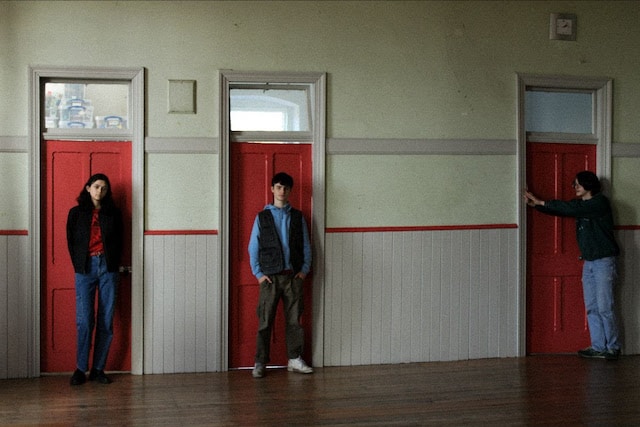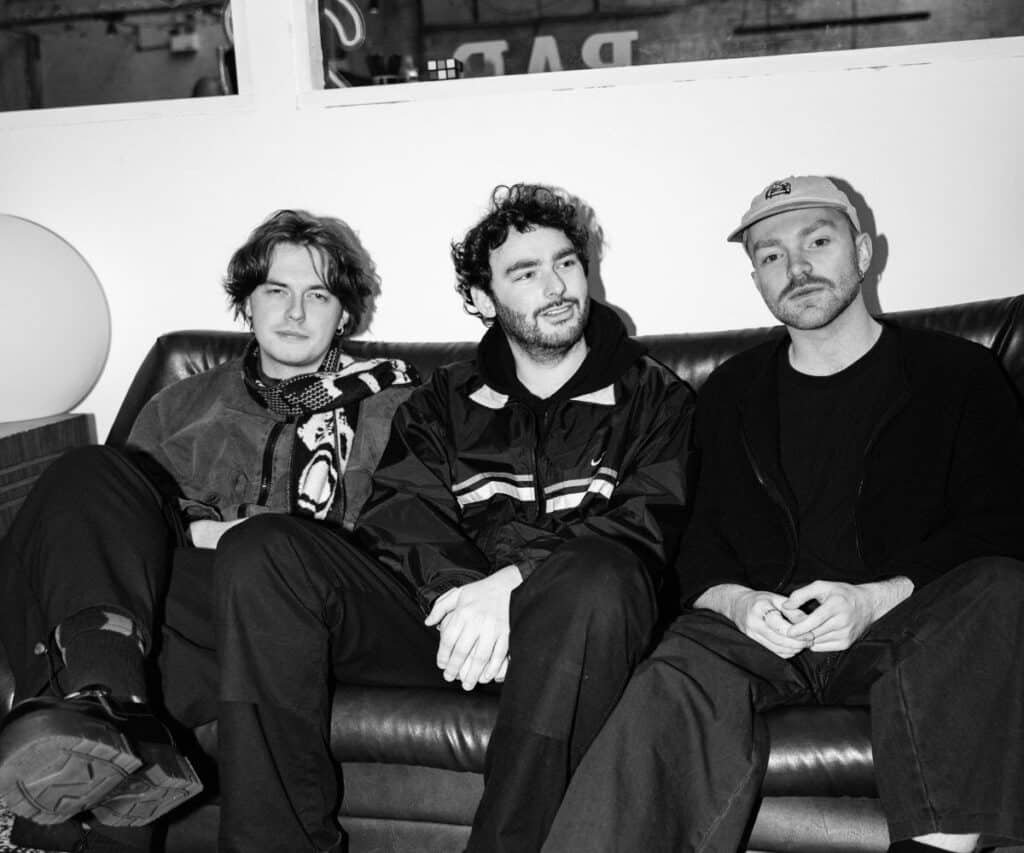Learning by doing and learning by watching, Hebden Bridge’s youthful indie-art-pop dreamers, The Short Causeway release their long-awaited debut single after absorbing the up-close gigs, DIY spirit, record collections and collaborative spirit found on the fertile musical hideaway of the Upper Calder Valley. Tripping Down The Stairs, an equally tight and purposely raw tumble through dream-pop and jittery-indie with a whooping new wave disco interlude is OUT NOW.

Installed gratefully as a very unofficial house band of the stalwart village live venue, The Trades Club, over the past year, The Short Causeway’s exposure as a support band in front of curious and expectant audiences, as well as for the remarkable artists passing through or calling the valley home, has shaped their own, restless, boundary-free sound. The three-piece’s musical apprenticeship has concluded after supporting bands like Peaness, The Lounge Society, Katy J Pearson and The Orielles.
Sandpit companions from childhood, Claudie Nicholson (guitar) and Rufus Stott-Leach (drums) joined together with Hayden Davey (bass) to create The Short Causeway after a euphoric, sweaty gig at the venue they’ve been able to call home. With Tripping Down The Stairs’ ambitious outswings into the realms of 80’s-jazz-pop, the notable influence of A Certain Ratio comes direct from source as the early-Factory band’s vocalist/bassist, Jez Kerr became an early admirer, friend and mentor.
Performing as a three-piece brings simplicity and complexity in equal measure, yet the band’s determination to assert the symbolic strength of the triangular friendship and artistic partnership is undimmable, with Tripping Down The Stairs the first example of The Short Causeway rising to, and taking advantage of their numeric limitations.
Nicholson explains: “We have always been keen to try bring something about that sounds a bit different. Being a three piece has been massively important to us and our identity, not just as a mirror of our friendship, but in the how it has forced us to think about the way we write, both in terms of needing to make more noise in some instances and needing to make use of an absence of noise at other times.”






